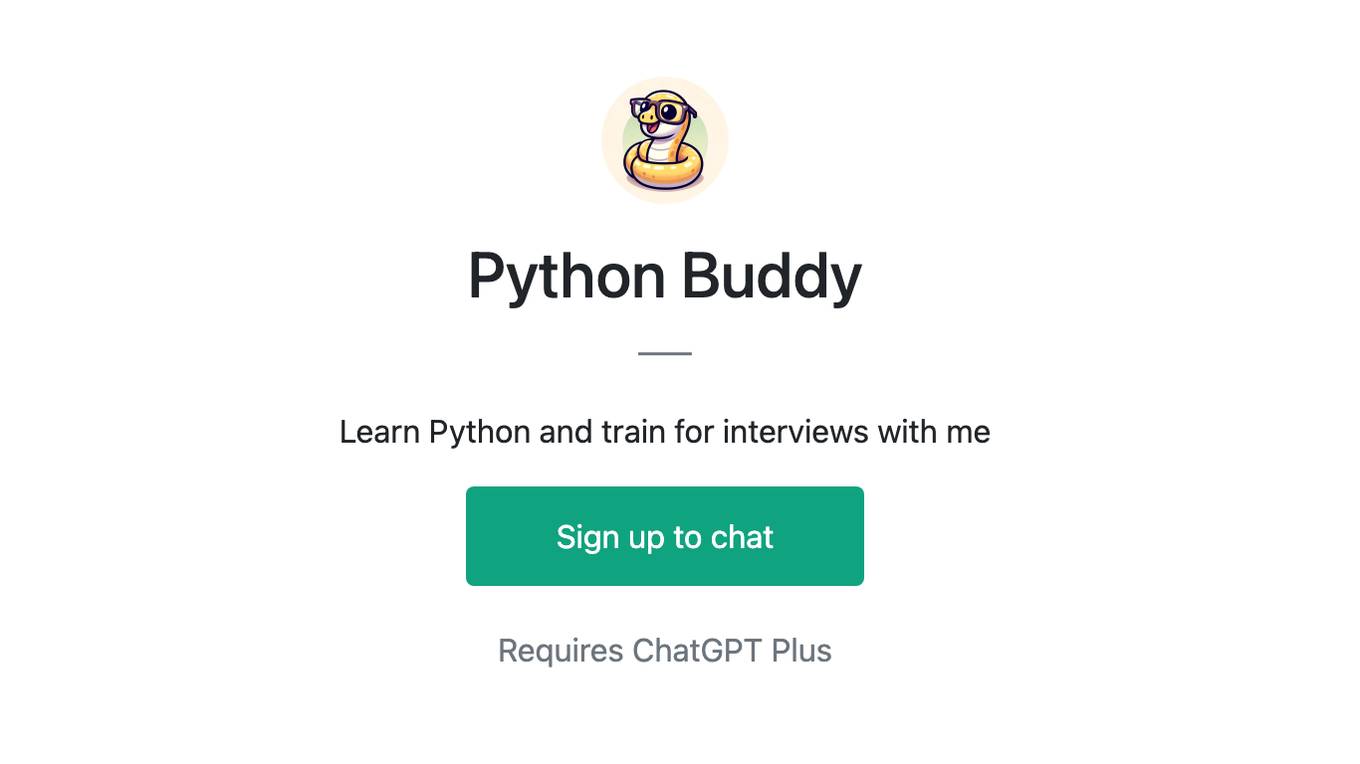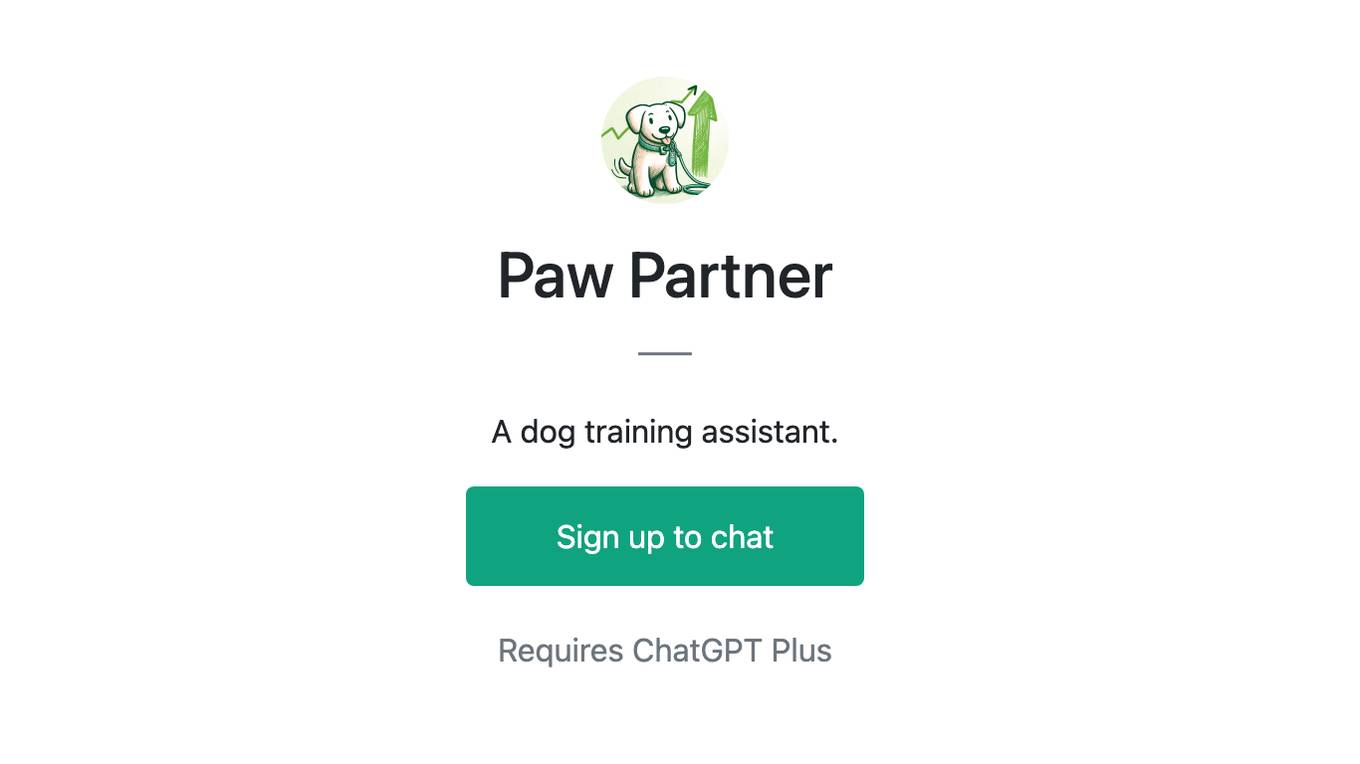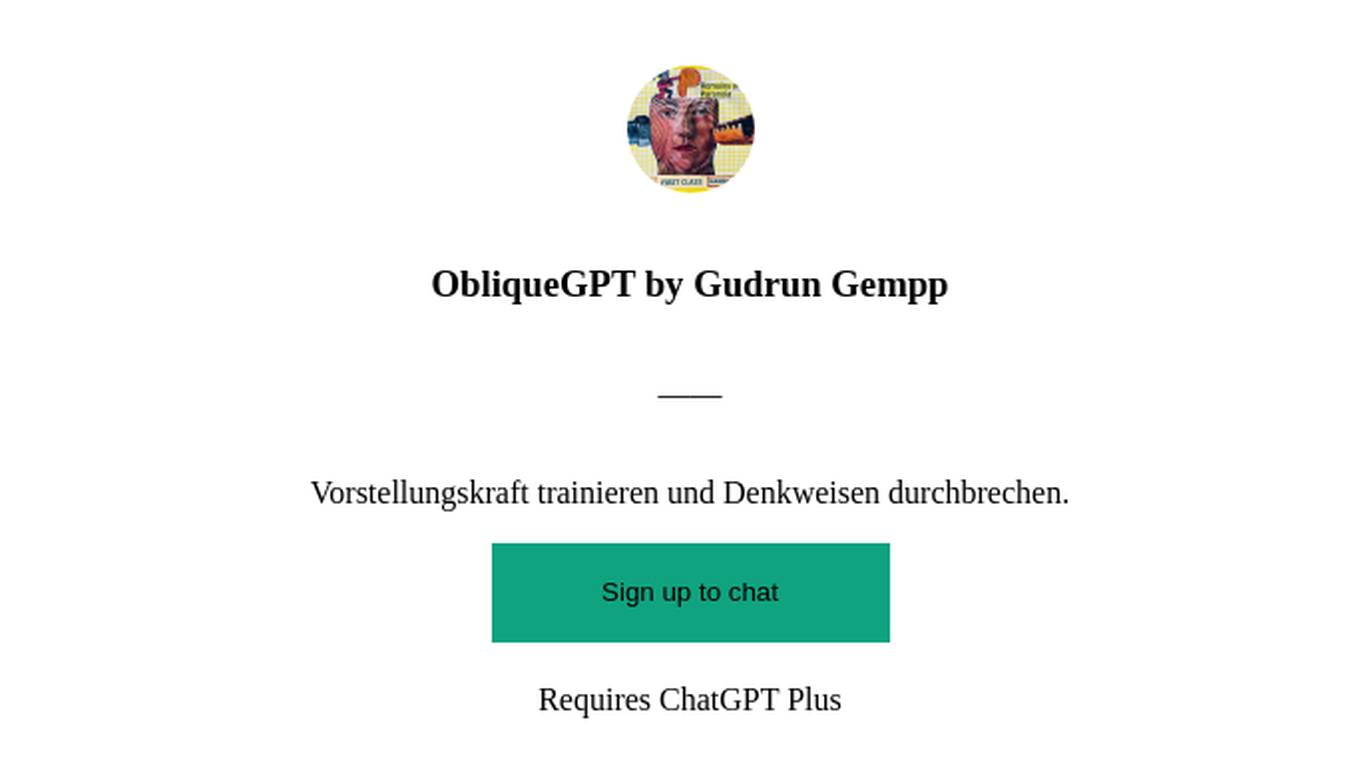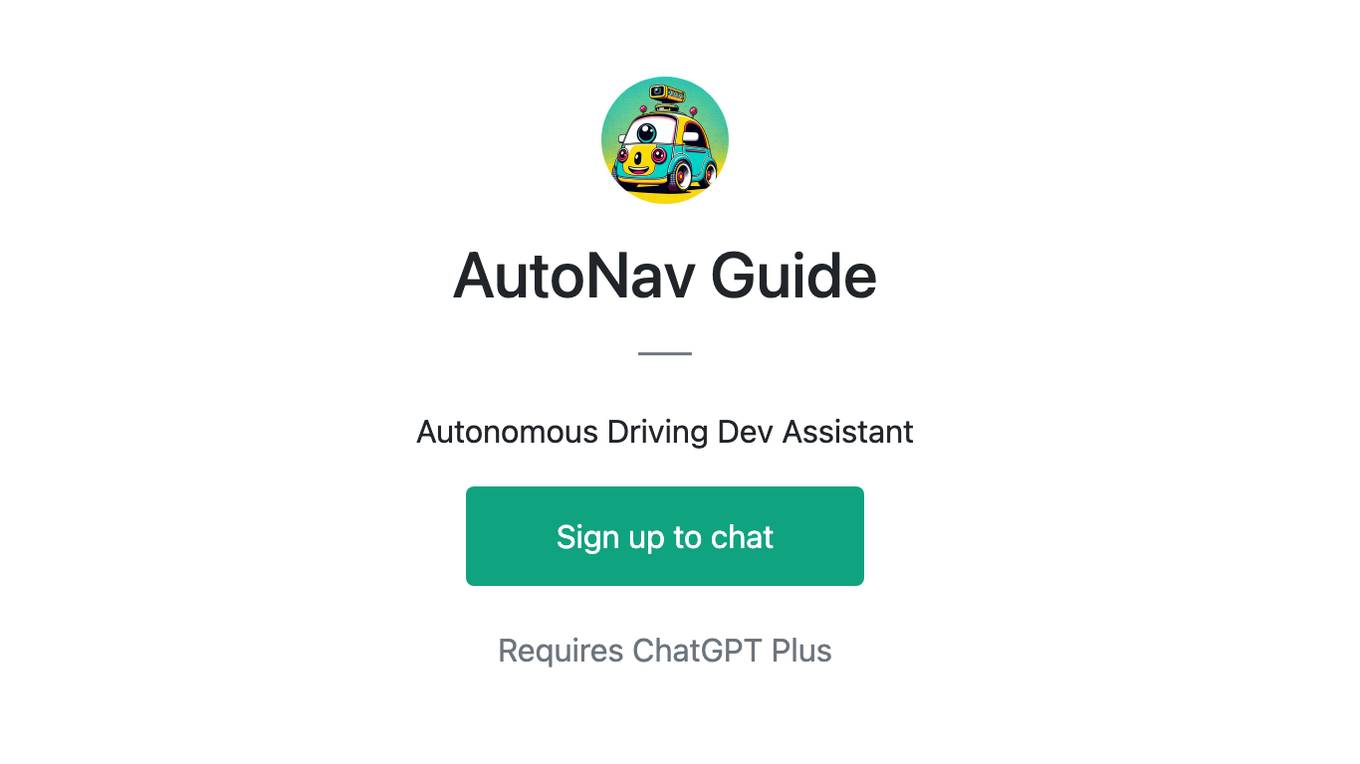Best AI tools for< Train Predictive Models >
20 - AI tool Sites
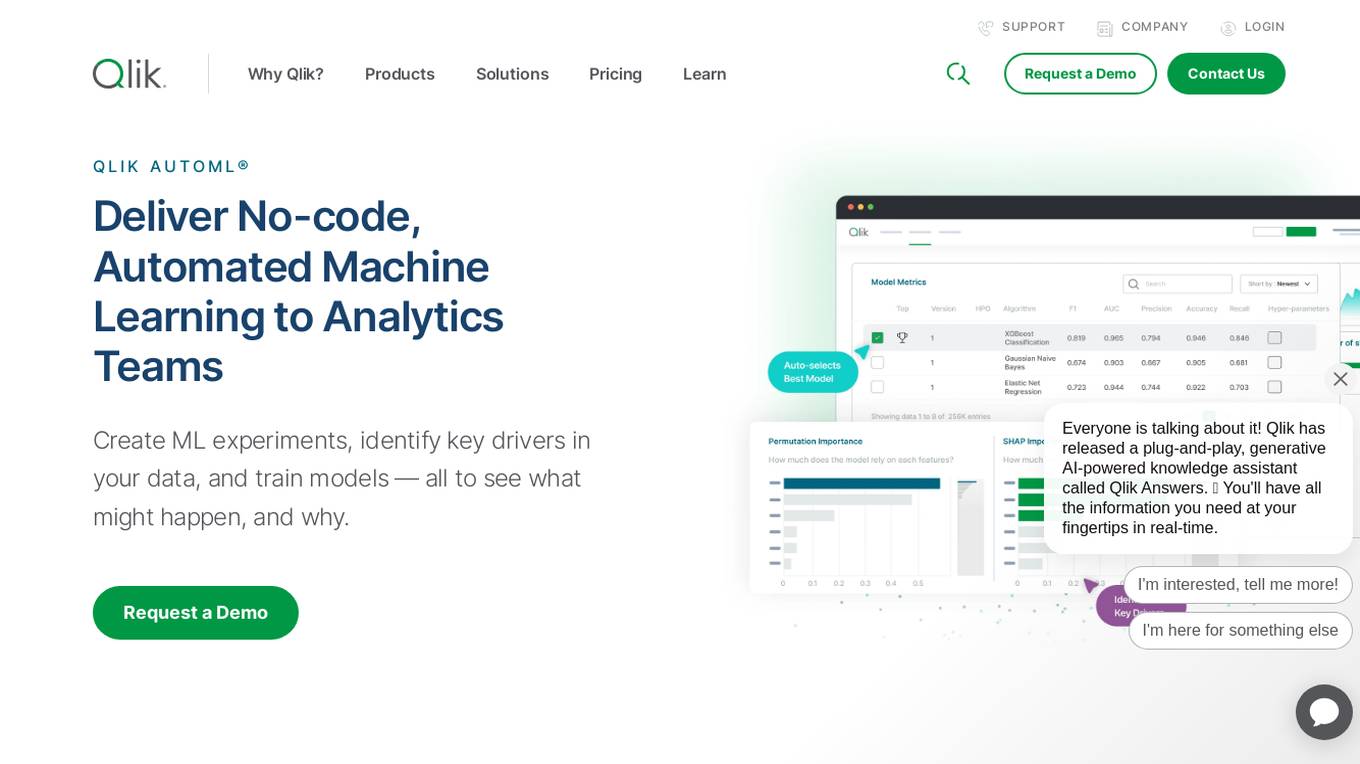
Qlik AutoML
Qlik AutoML is an AI tool that offers automated machine learning for analytics teams. It allows users to create machine learning experiments, identify key drivers in data, train models, and make predictions. With a focus on no-code machine learning, Qlik AutoML simplifies the process of generating predictive models and understanding outcomes. The tool enables users to explore predictive data, test what-if scenarios, and leverage AI-powered connectors for seamless integration with other AI and machine learning tools.

Stockpulse
Stockpulse is an AI-powered platform that analyzes financial news and communities using Artificial Intelligence. It provides decision support for operations by collecting, filtering, and converting unstructured data into processable information. With extensive coverage of financial media sources globally, Stockpulse offers unique historical data, sentiment analysis, and AI-driven insights for various sectors in the financial markets.
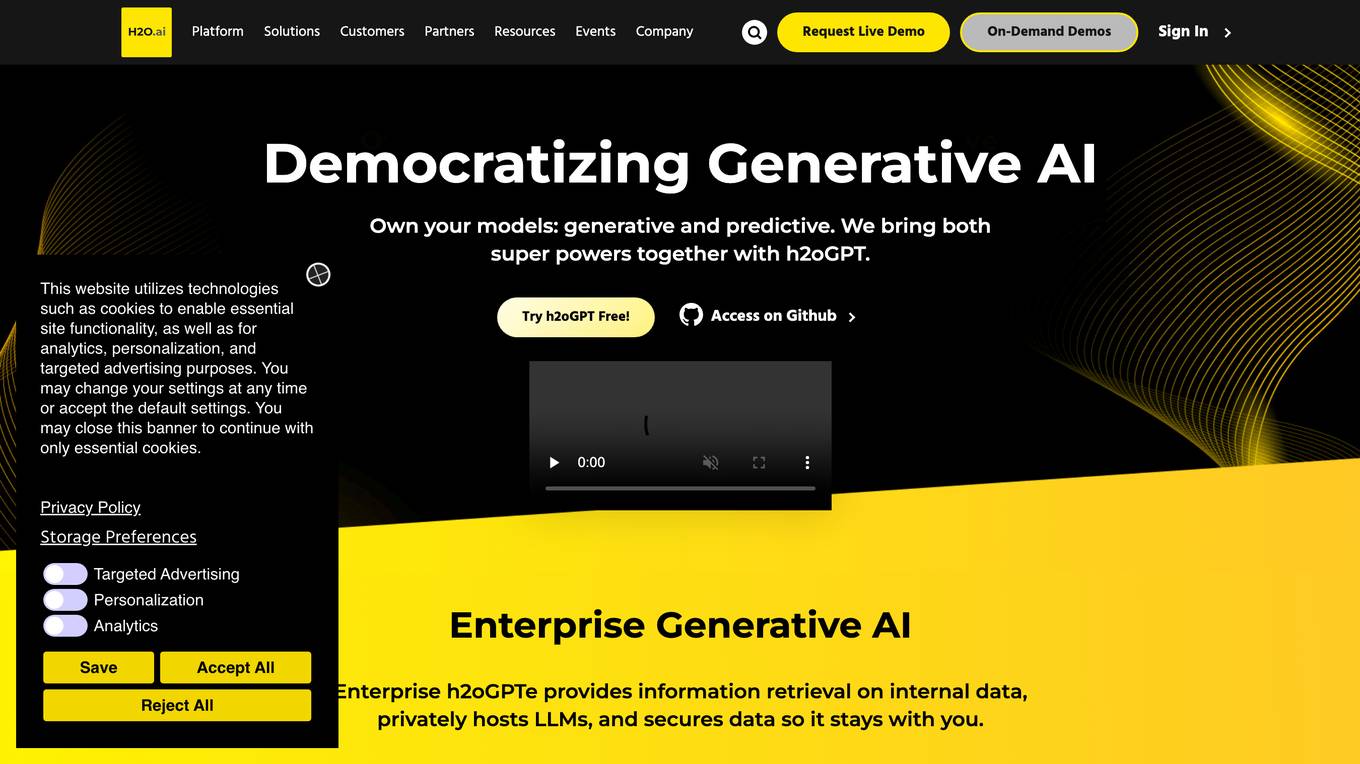
H2O.ai
H2O.ai is a leading AI platform that offers a convergence of predictive and generative AI solutions for private and protected data. The platform provides a wide range of AI agents, digital assistants, and business insights tools for various industries and use cases. With a focus on model building, data science, and enterprise development, H2O.ai empowers users to accelerate model development, automate workflows, and deploy AI applications securely on-premises or in the cloud.

DeepVinci
DeepVinci is an AI-powered platform that helps businesses automate their workflows and make better decisions. It offers a range of features, including data annotation, model training, and predictive analytics.
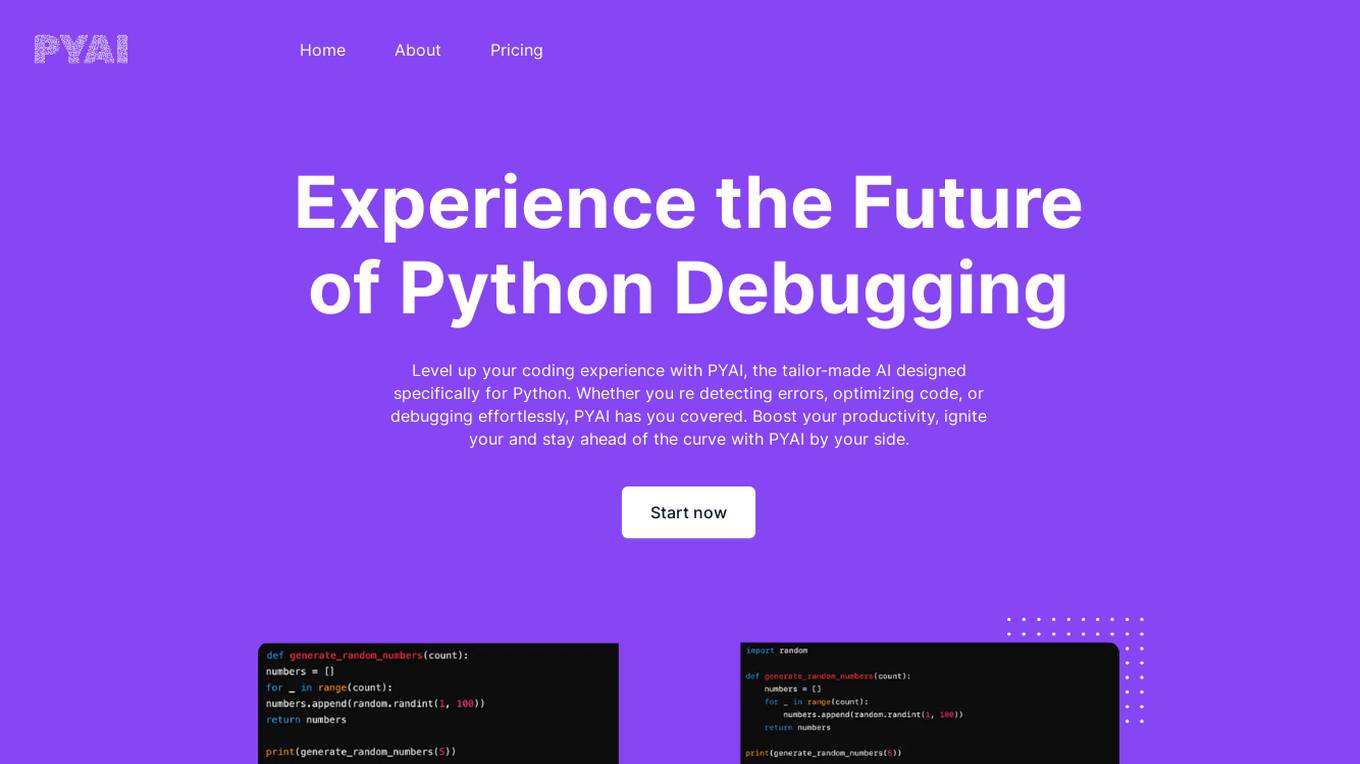
PyAI
PyAI is an advanced AI tool designed for developers and data scientists to streamline their workflow and enhance productivity. It offers a wide range of AI capabilities, including machine learning algorithms, natural language processing, computer vision, and more. With PyAI, users can easily build, train, and deploy AI models for various applications, such as predictive analytics, image recognition, and text classification. The tool provides a user-friendly interface and comprehensive documentation to support users at every stage of their AI projects.

TensorFlow
TensorFlow is an end-to-end platform for machine learning. It provides a wide range of tools and resources to help developers build, train, and deploy ML models. TensorFlow is used by researchers and developers all over the world to solve real-world problems in a variety of domains, including computer vision, natural language processing, and robotics.
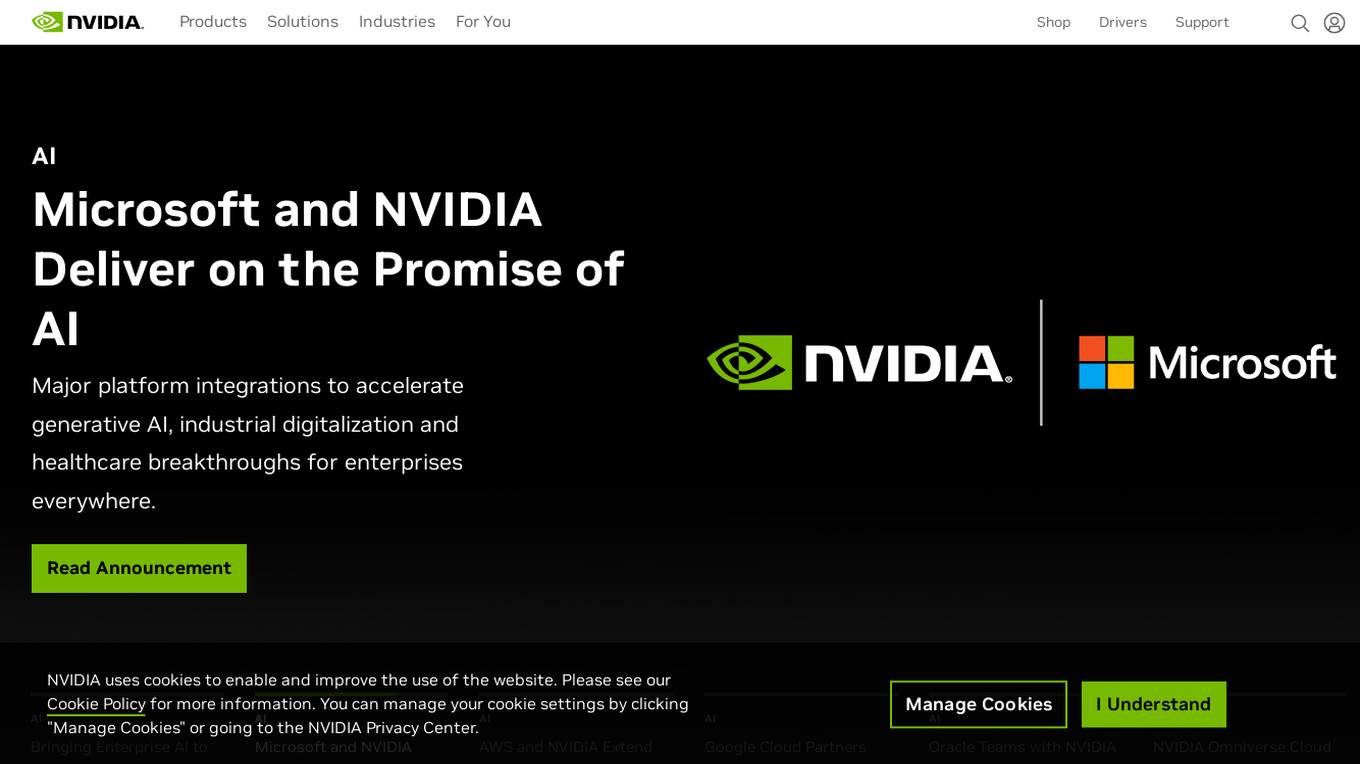
NVIDIA
NVIDIA is a world leader in artificial intelligence computing. The company's products and services are used by businesses and governments around the world to develop and deploy AI applications. NVIDIA's AI platform includes hardware, software, and tools that make it easy to build and train AI models. The company also offers a range of cloud-based AI services that make it easy to deploy and manage AI applications. NVIDIA's AI platform is used in a wide variety of industries, including healthcare, manufacturing, retail, and transportation. The company's AI technology is helping to improve the efficiency and accuracy of a wide range of tasks, from medical diagnosis to product design.
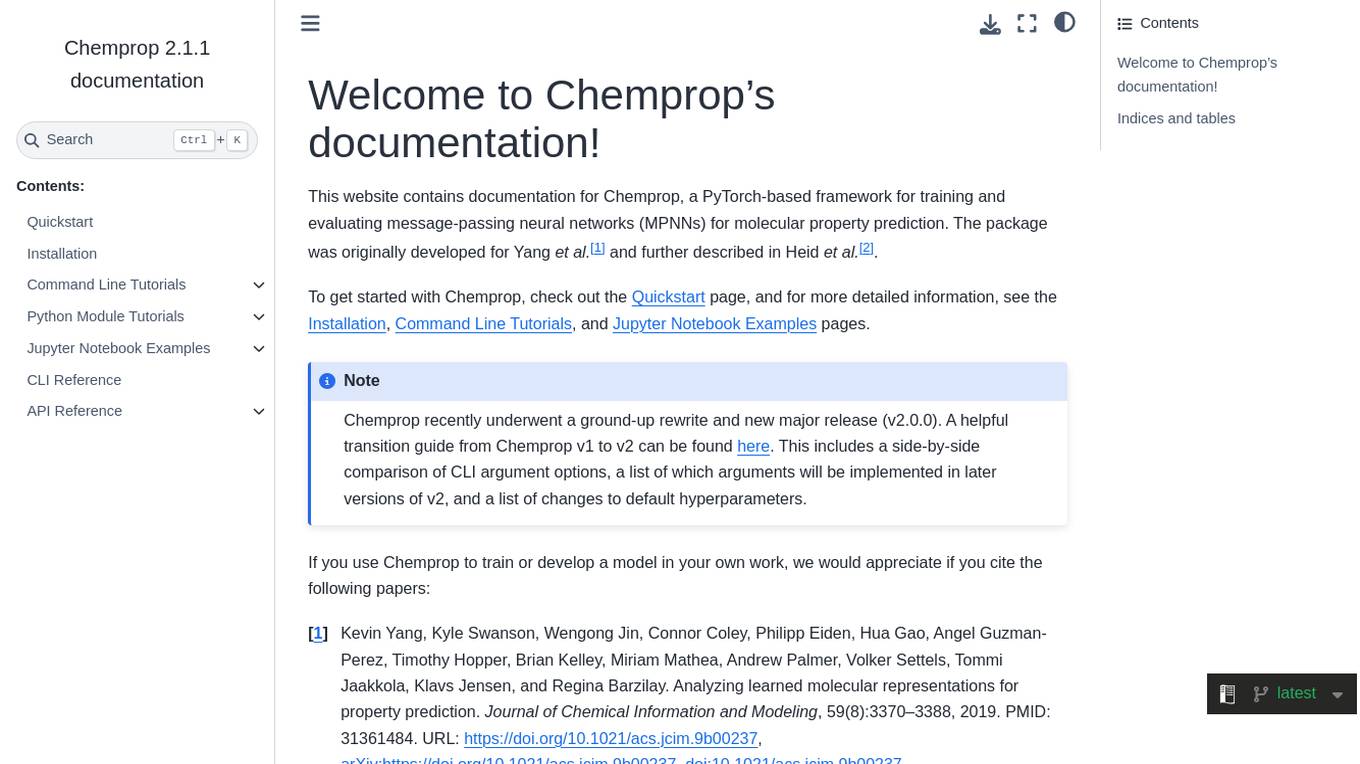
Chemprop
Chemprop is a PyTorch-based framework for training and evaluating message-passing neural networks (MPNNs) for molecular property prediction. Originally developed for research purposes, Chemprop offers a comprehensive set of tools and features for training models and analyzing molecular representations. The package underwent a recent major release (v2.0.0) with significant improvements and updates.
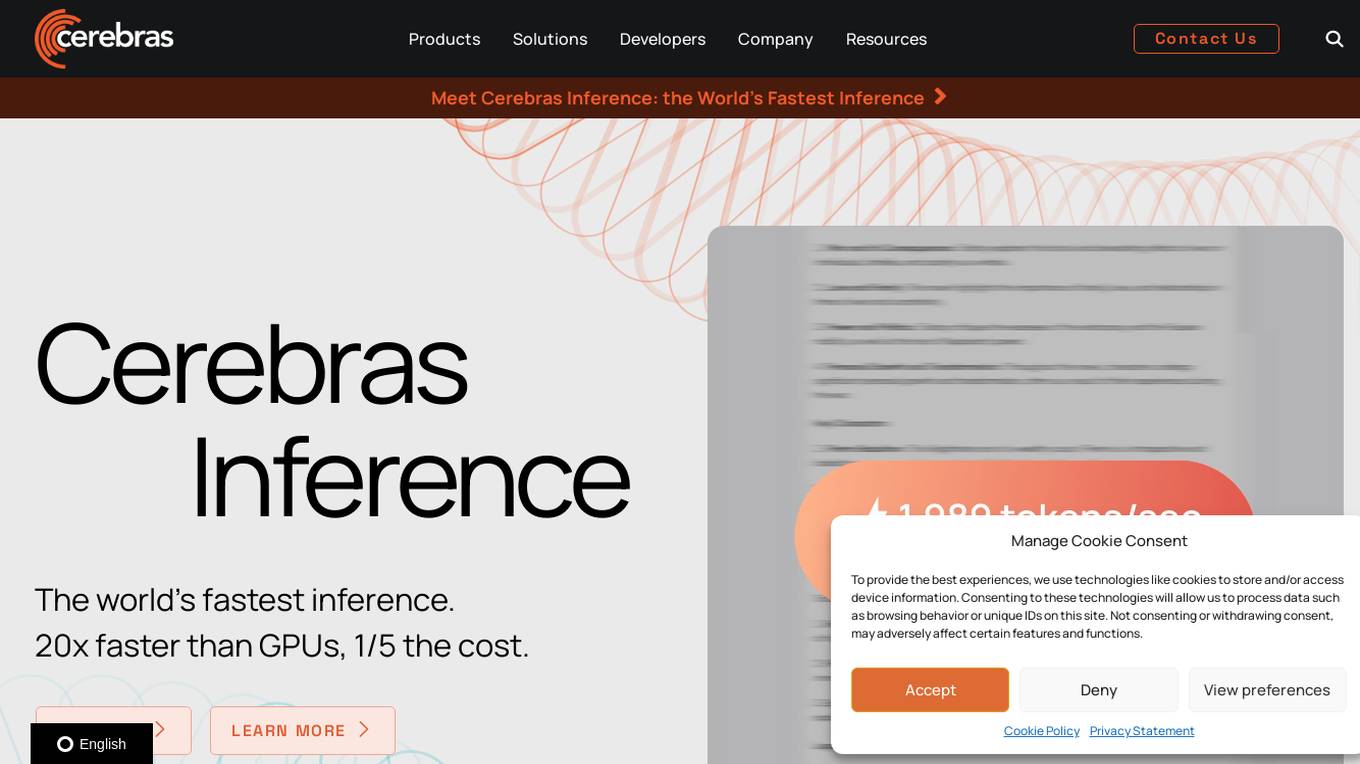
Cerebras
Cerebras is an AI tool that offers products and services related to AI supercomputers, cloud system processors, and applications for various industries. It provides high-performance computing solutions, including large language models, and caters to sectors such as health, energy, government, scientific computing, and financial services. Cerebras specializes in AI model services, offering state-of-the-art models and training services for tasks like multi-lingual chatbots and DNA sequence prediction. The platform also features the Cerebras Model Zoo, an open-source repository of AI models for developers and researchers.
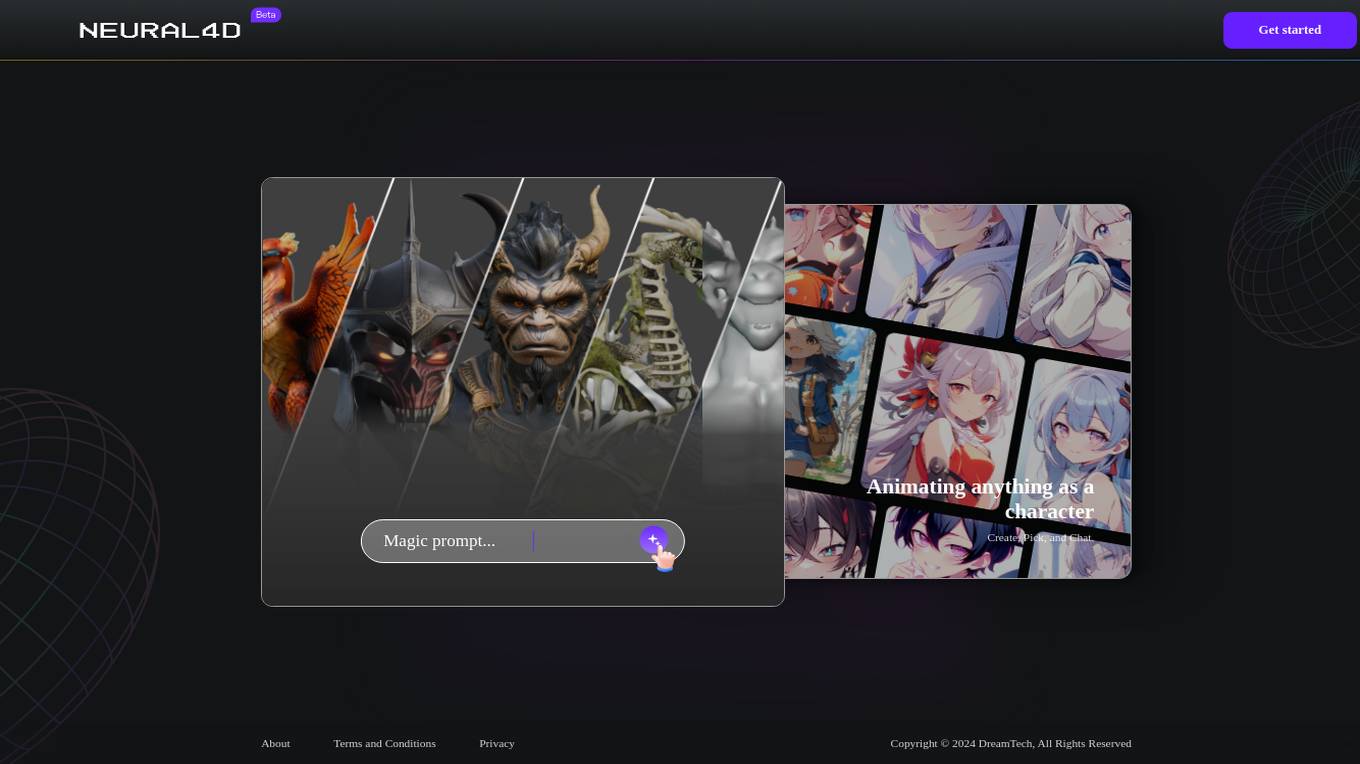
Neural4D
Neural4D is an AI tool designed to provide advanced neural network solutions. It offers a range of features for deep learning applications, including image recognition, natural language processing, and predictive analytics. With Neural4D, users can build and train complex neural networks to solve various real-world problems. The tool is user-friendly and suitable for both beginners and experienced AI practitioners.

EDOM.AI
EDOM.AI is the first artificial business brain that provides secret strategies used by major companies to help users create, grow, and start their businesses. It offers access to proven billionaire secrets and allows users to create ideas based on the brains of the greatest entrepreneurs. EDOM.AI is constantly evolving to offer the best LLM possible for businesses.
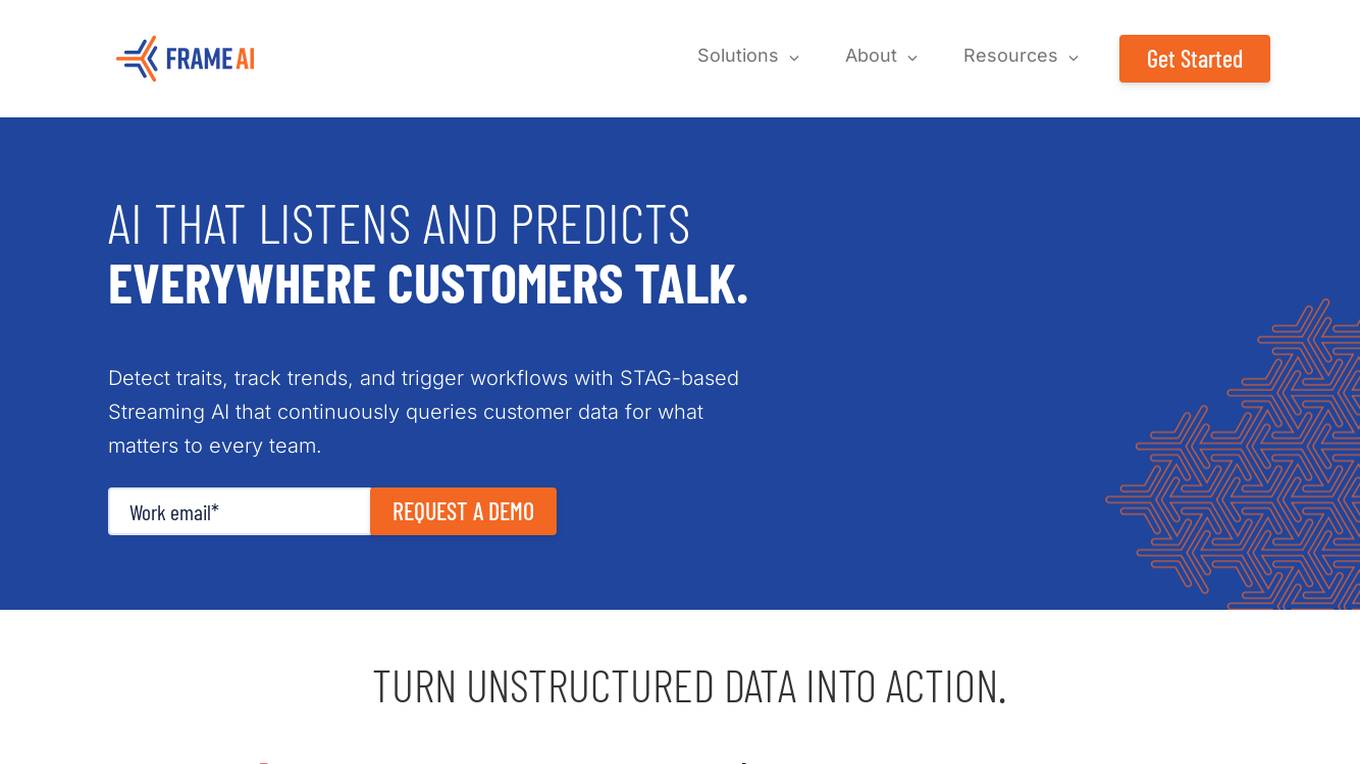
Frame AI
Frame AI is a premier Streaming AI Platform powered by STAG, designed to provide proactive insights and tools for every team by continuously querying customer data to detect traits, track trends, and trigger workflows. The platform turns unstructured data into actionable insights, helping teams stay ahead of risks and opportunities. Frame AI's architecture autonomously queries customer data based on user objectives, activating inside existing business tools to provide real-time customer data. With features like enrichments, triggers, alerts, and insights, Frame AI enables better decisions faster by combining predictive signals in customer text into task-specific scores. The platform is suitable for marketing, CX, support, and product teams, offering real-time usability feedback, demographic and psychographic trait detection, and secure data handling. Frame AI is SOC 2 Type II certified and HIPAA compliant, with a team of AI experts leading the development of AI solutions for various organizations.

Bothatch
Bothatch is a platform that allows users to create custom chatbots powered by OpenAI's GPT technology. With Bothatch, users can upload their own data and documents to train their chatbots, which can then be used to engage in meaningful and productive conversations. Bothatch is designed to be easy to use, with no coding or technical skills required. It is also affordable, with pricing plans starting at $0 per month.

IBM Watsonx
IBM Watsonx is an enterprise studio for AI builders. It provides a platform to train, validate, tune, and deploy AI models quickly and efficiently. With Watsonx, users can access a library of pre-trained AI models, build their own models, and deploy them to the cloud or on-premises. Watsonx also offers a range of tools and services to help users manage and monitor their AI models.

Outlier AI
Outlier AI is a platform that connects subject matter experts to help build the world's most advanced Generative AI. It allows experts to work on various projects from generating training data to evaluating model performance. The platform offers flexibility, allowing contributors to work from home on their own schedule. Outlier AI aims to redefine how AI learns by leveraging the expertise of domain specialists across different fields.
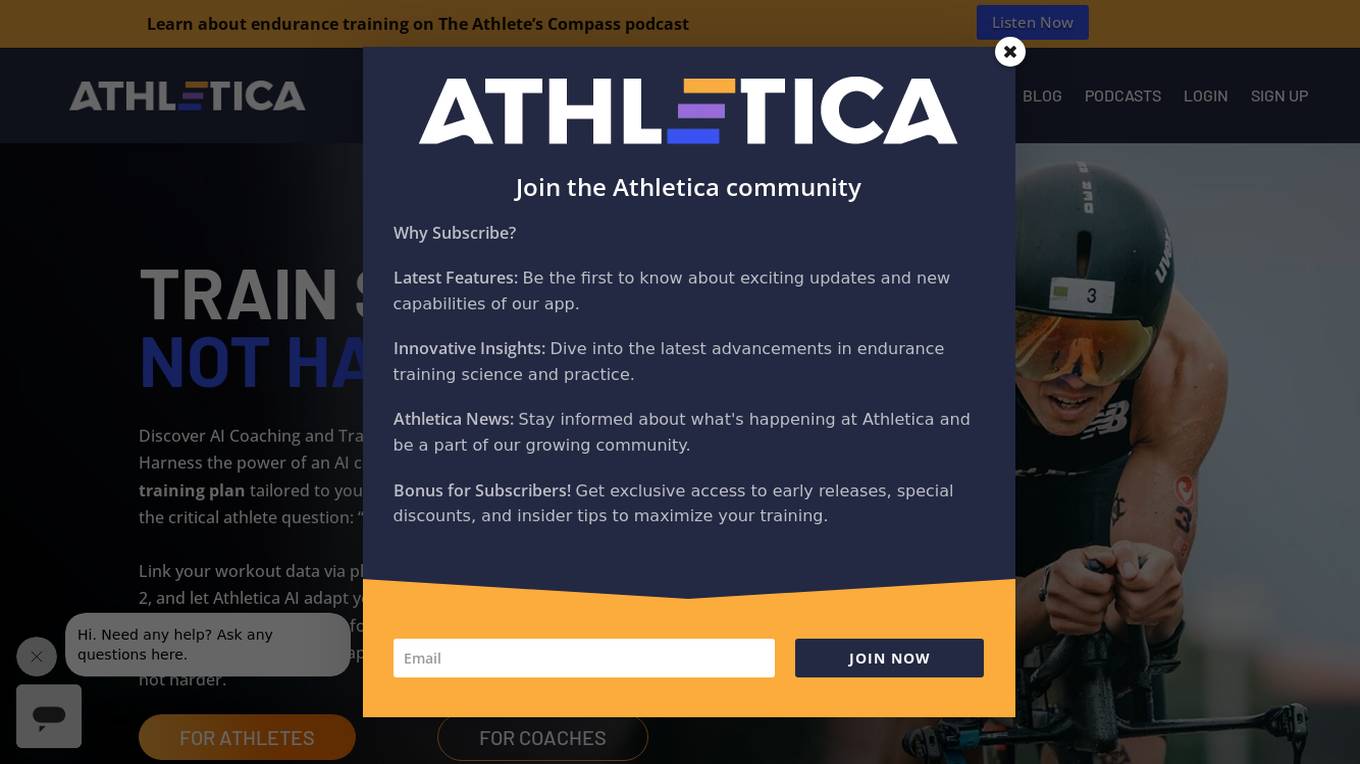
Athletica AI
Athletica AI is an AI-powered athletic training and personalized fitness application that offers tailored coaching and training plans for various sports like cycling, running, duathlon, triathlon, and rowing. It adapts to individual fitness levels, abilities, and availability, providing daily step-by-step training plans and comprehensive session analyses. Athletica AI integrates seamlessly with workout data from platforms like Garmin, Strava, and Concept 2 to craft personalized training plans and workouts. The application aims to help athletes train smarter, not harder, by leveraging the power of AI to optimize performance and achieve fitness goals.

Backend.AI
Backend.AI is an enterprise-scale cluster backend for AI frameworks that offers scalability, GPU virtualization, HPC optimization, and DGX-Ready software products. It provides a fast and efficient way to build, train, and serve AI models of any type and size, with flexible infrastructure options. Backend.AI aims to optimize backend resources, reduce costs, and simplify deployment for AI developers and researchers. The platform integrates seamlessly with existing tools and offers fractional GPU usage and pay-as-you-play model to maximize resource utilization.
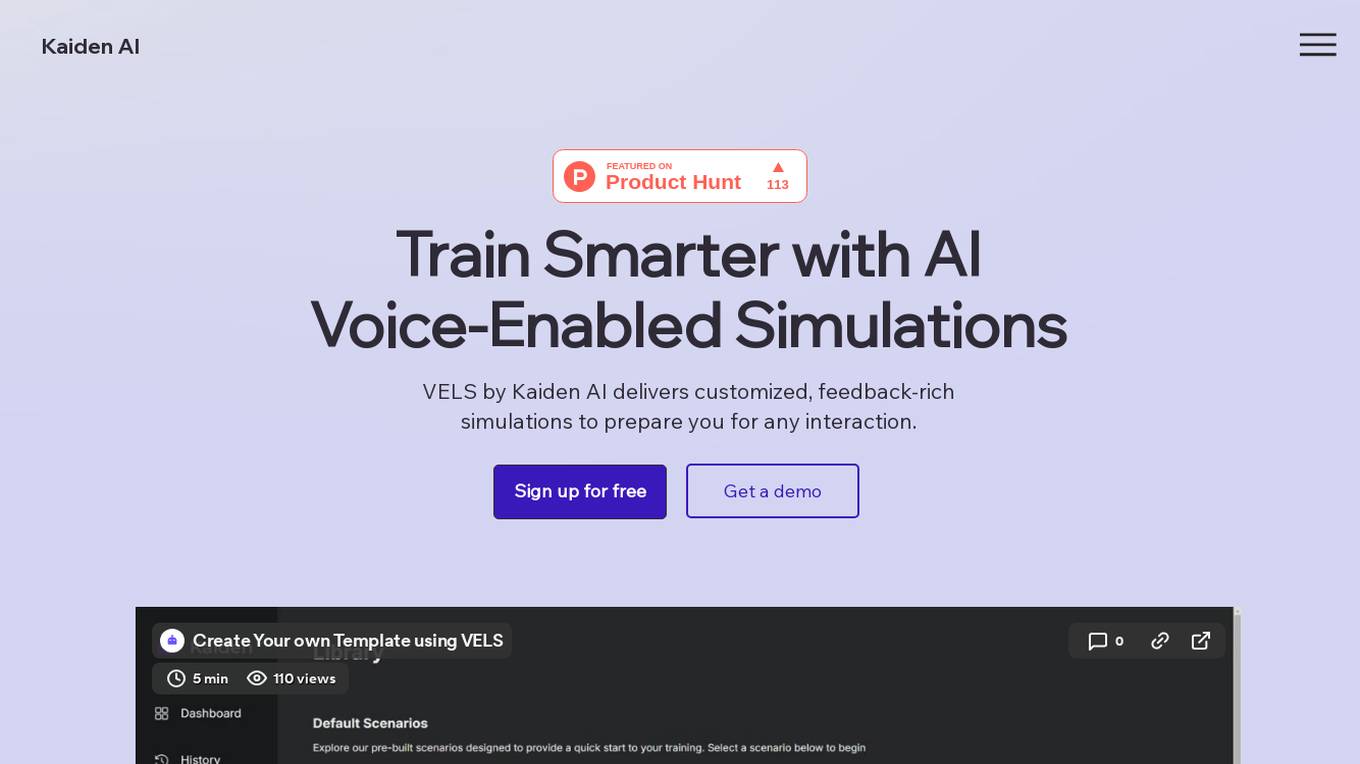
Kaiden AI
Kaiden AI is an AI-powered training platform that offers personalized, immersive simulations to enhance skills and performance across various industries and roles. It provides feedback-rich scenarios, voice-enabled interactions, and detailed performance insights. Users can create custom training scenarios, engage with AI personas, and receive real-time feedback to improve communication skills. Kaiden AI aims to revolutionize training solutions by combining AI technology with real-world practice.

Endurance
Endurance is a platform designed for runners, swimmers, and cyclists to engage in group training activities with friends or local communities. Users can create or join teams, share structured workouts, and benefit from collective motivation and accountability. The platform aims to make training fun and effective by leveraging the power of group workouts and social connections.
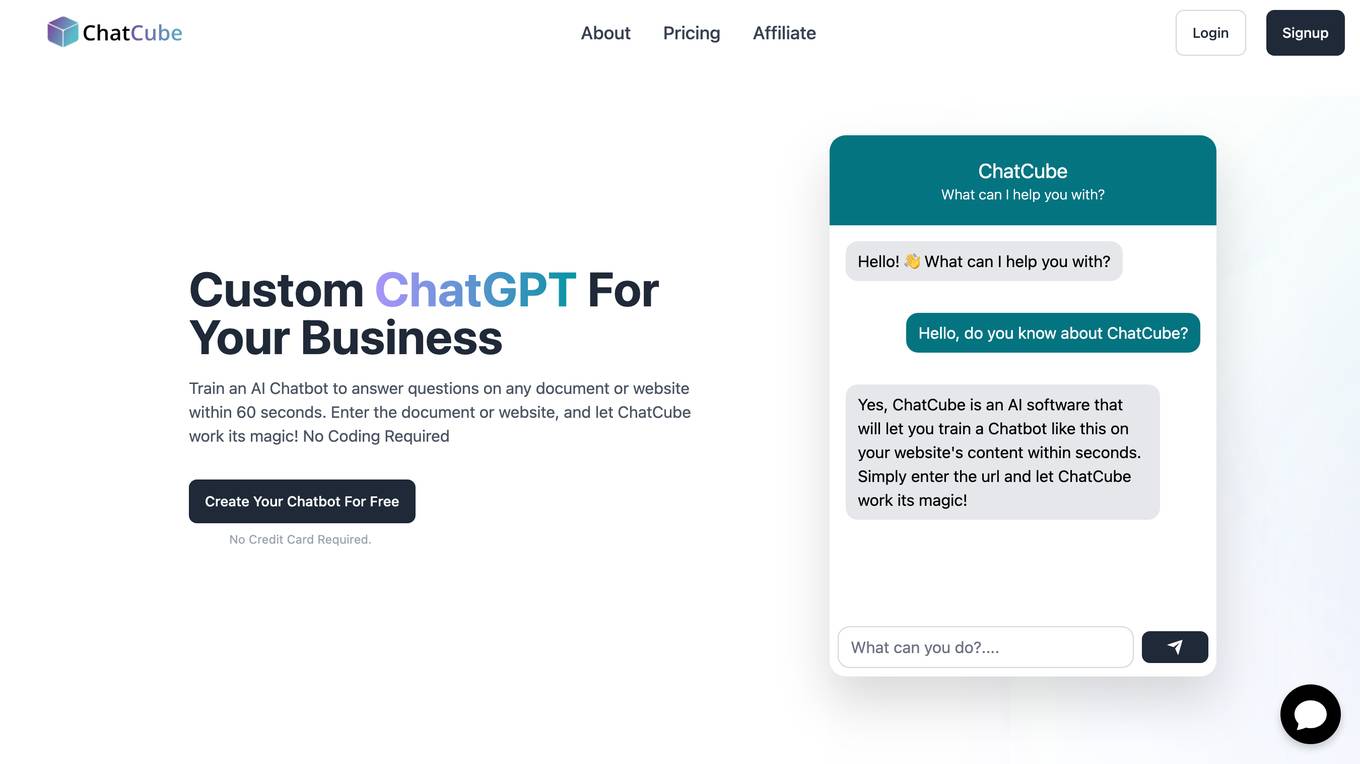
ChatCube
ChatCube is an AI-powered chatbot maker that allows users to create chatbots for their websites without coding. It uses advanced AI technology to train chatbots on any document or website within 60 seconds. ChatCube offers a range of features, including a user-friendly visual editor, lightning-fast integration, fine-tuning on specific data sources, data encryption and security, and customizable chatbots. By leveraging the power of AI, ChatCube helps businesses improve customer support efficiency and reduce support ticket reductions by up to 28%.
1 - Open Source AI Tools
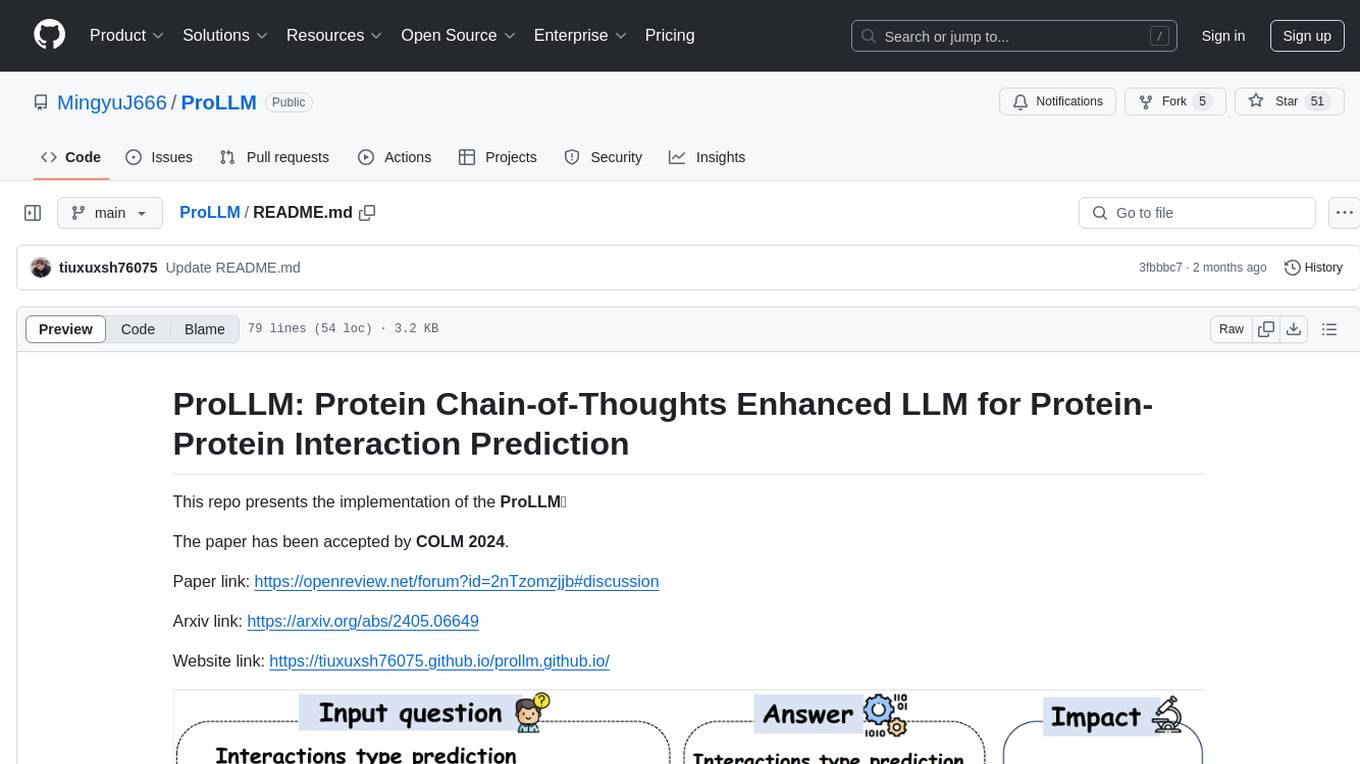
ProLLM
ProLLM is a framework that leverages Large Language Models to interpret and analyze protein sequences and interactions through natural language processing. It introduces the Protein Chain of Thought (ProCoT) method to transform complex protein interaction data into intuitive prompts, enhancing predictive accuracy by incorporating protein-specific embeddings and fine-tuning on domain-specific datasets.
20 - OpenAI Gpts

How to Train a Chessie
Comprehensive training and wellness guide for Chesapeake Bay Retrievers.
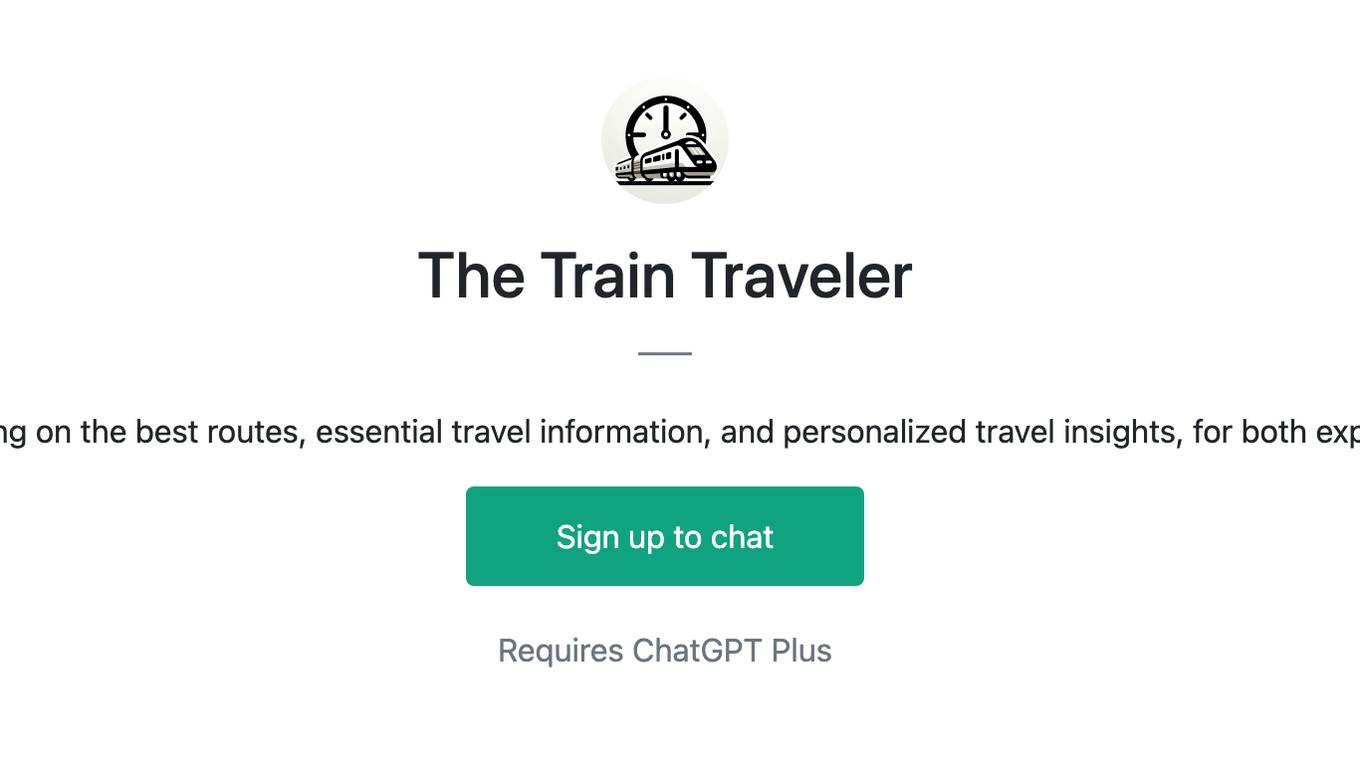
The Train Traveler
Friendly train travel guide focusing on the best routes, essential travel information, and personalized travel insights, for both experienced and novice travelers.

How to Train Your Dog (or Cat, or Dragon, or...)
Expert in pet training advice, friendly and engaging.
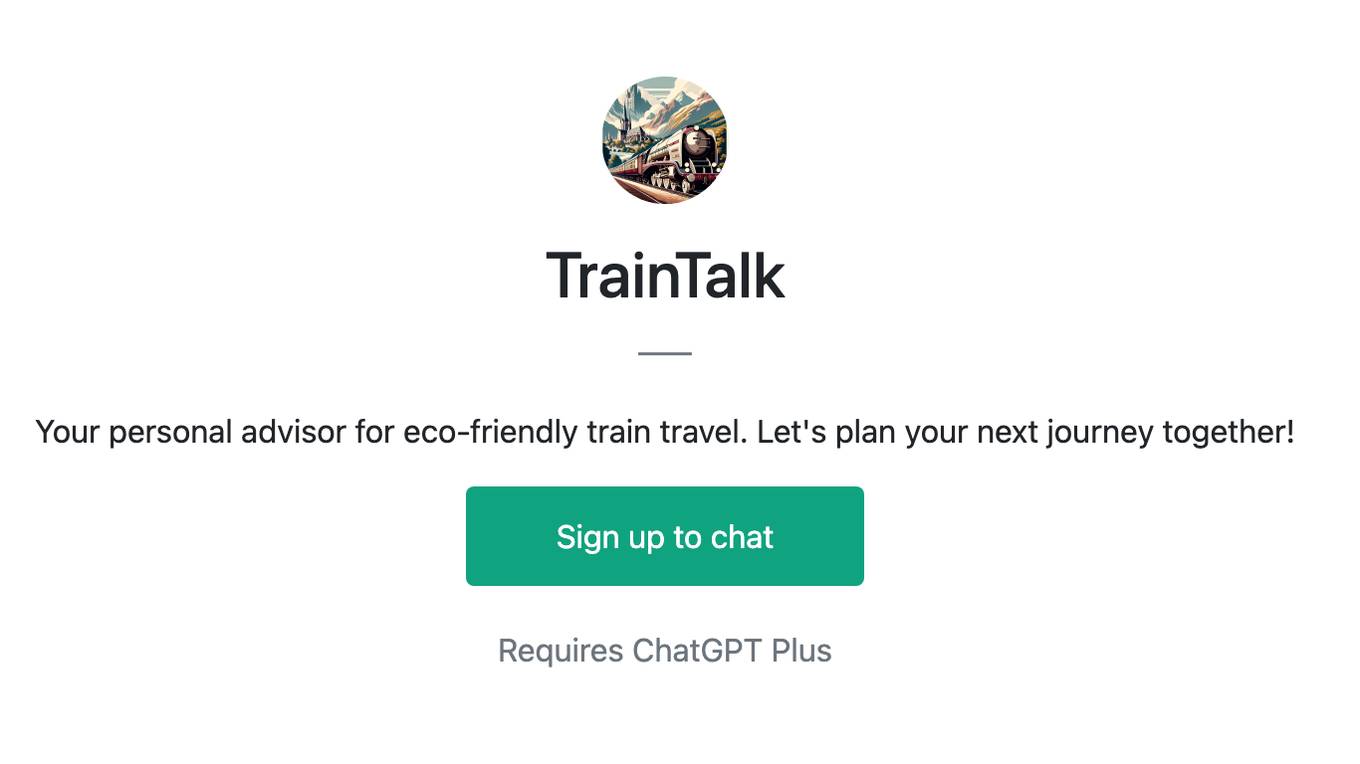
TrainTalk
Your personal advisor for eco-friendly train travel. Let's plan your next journey together!
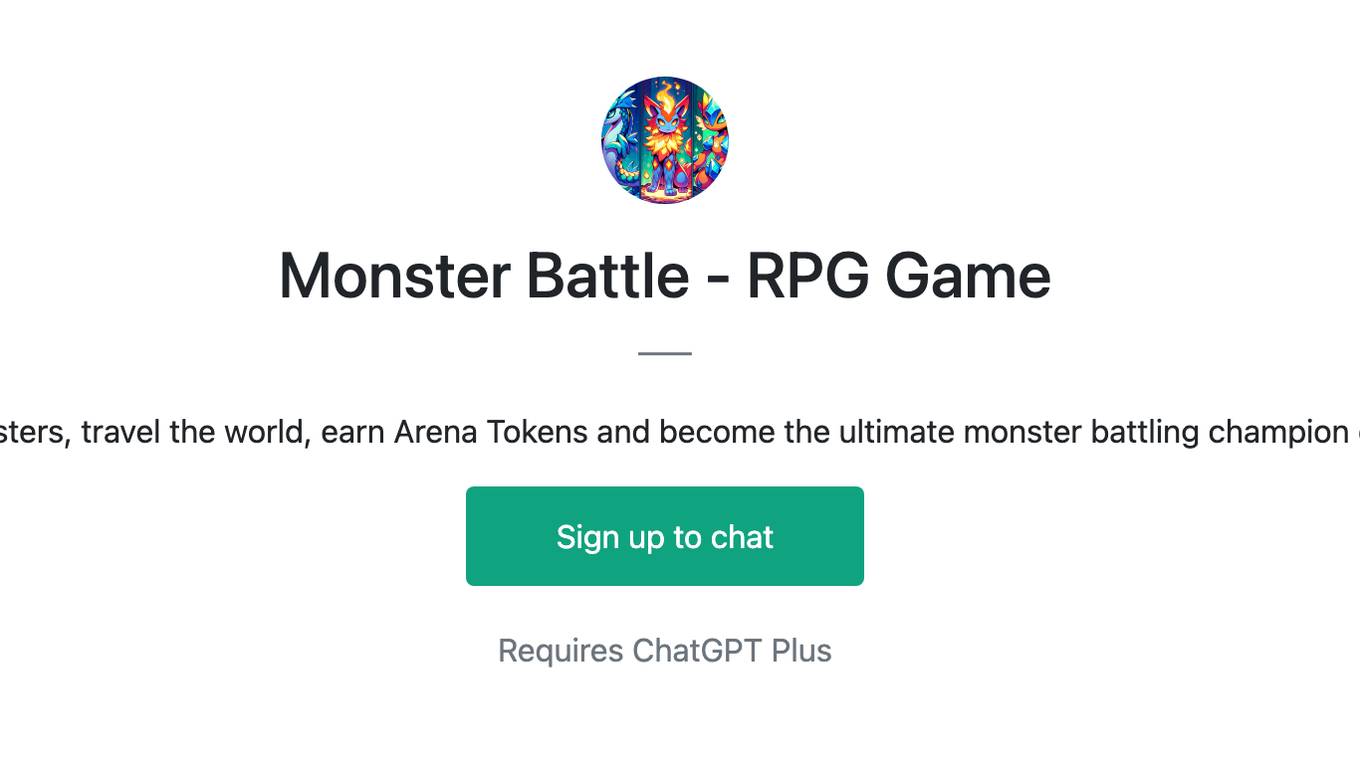
Monster Battle - RPG Game
Train monsters, travel the world, earn Arena Tokens and become the ultimate monster battling champion of earth!
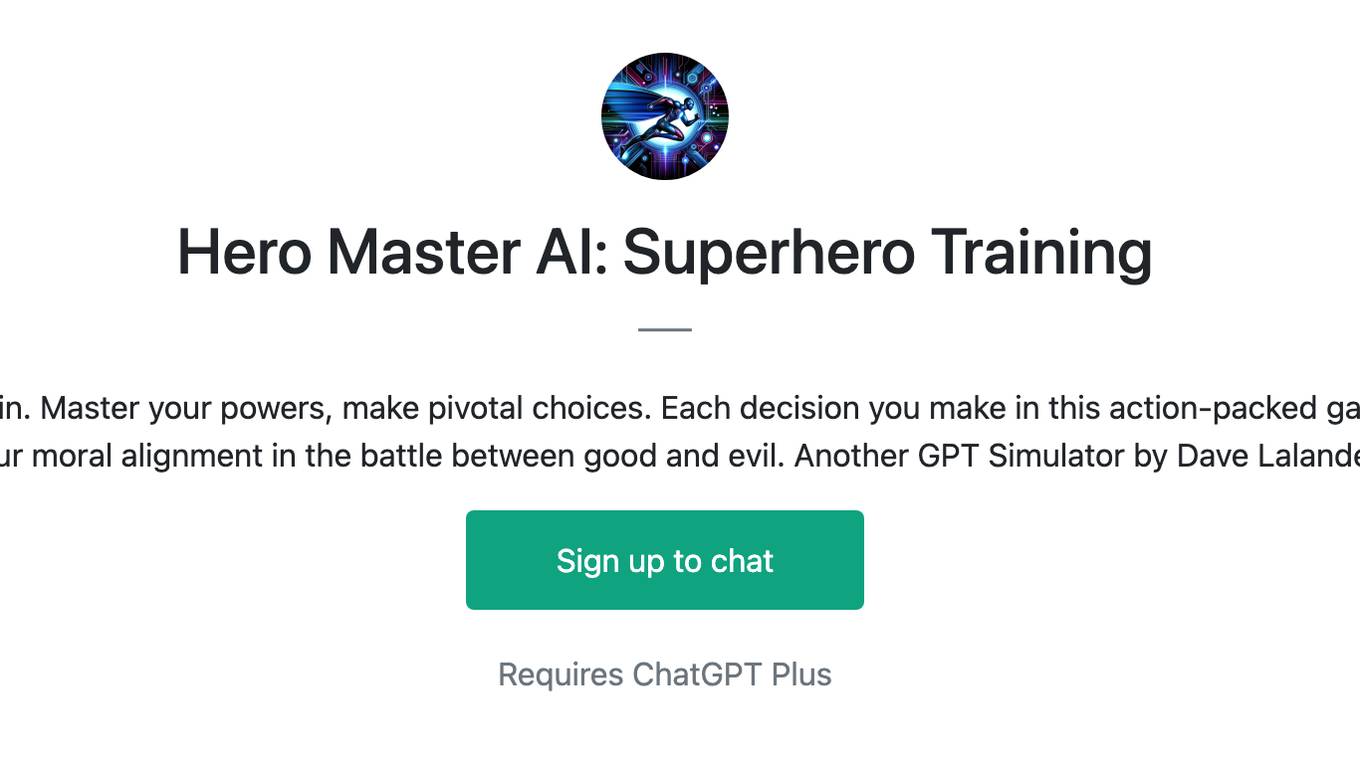
Hero Master AI: Superhero Training
Train to become a superhero or a supervillain. Master your powers, make pivotal choices. Each decision you make in this action-packed game not only shapes your abilities but also your moral alignment in the battle between good and evil. Another GPT Simulator by Dave Lalande

Pytorch Trainer GPT
Your purpose is to create the pytorch code to train language models using pytorch

Design Recruiter
Job interview coach for product designers. Train interviews and say stop when you need a feedback. You got this!!

Pocket Training Activity Expert
Expert in engaging, interactive training methods and activities.
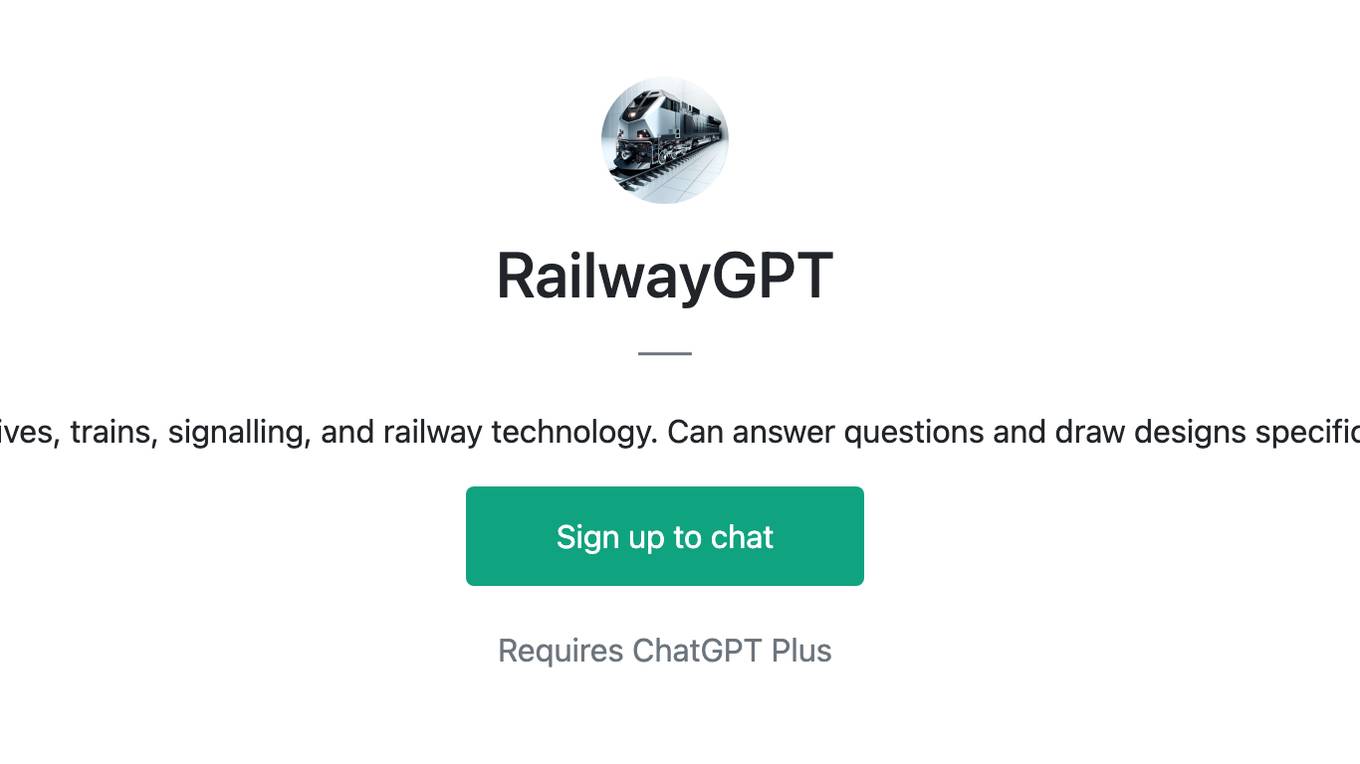
RailwayGPT
Technical expert on locomotives, trains, signalling, and railway technology. Can answer questions and draw designs specific to transportation domain.

Railroad Conductors and Yardmasters Roadmap
Don’t know where to even begin? Let me help create a roadmap towards the career of your dreams! Type "help" for More Information

Instructor GCP ML
Formador para la certificación de ML Engineer en GCP, con respuestas y explicaciones detalladas.

